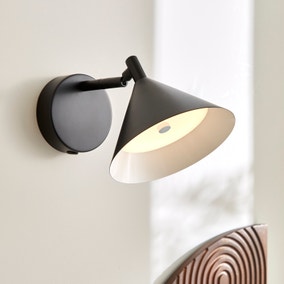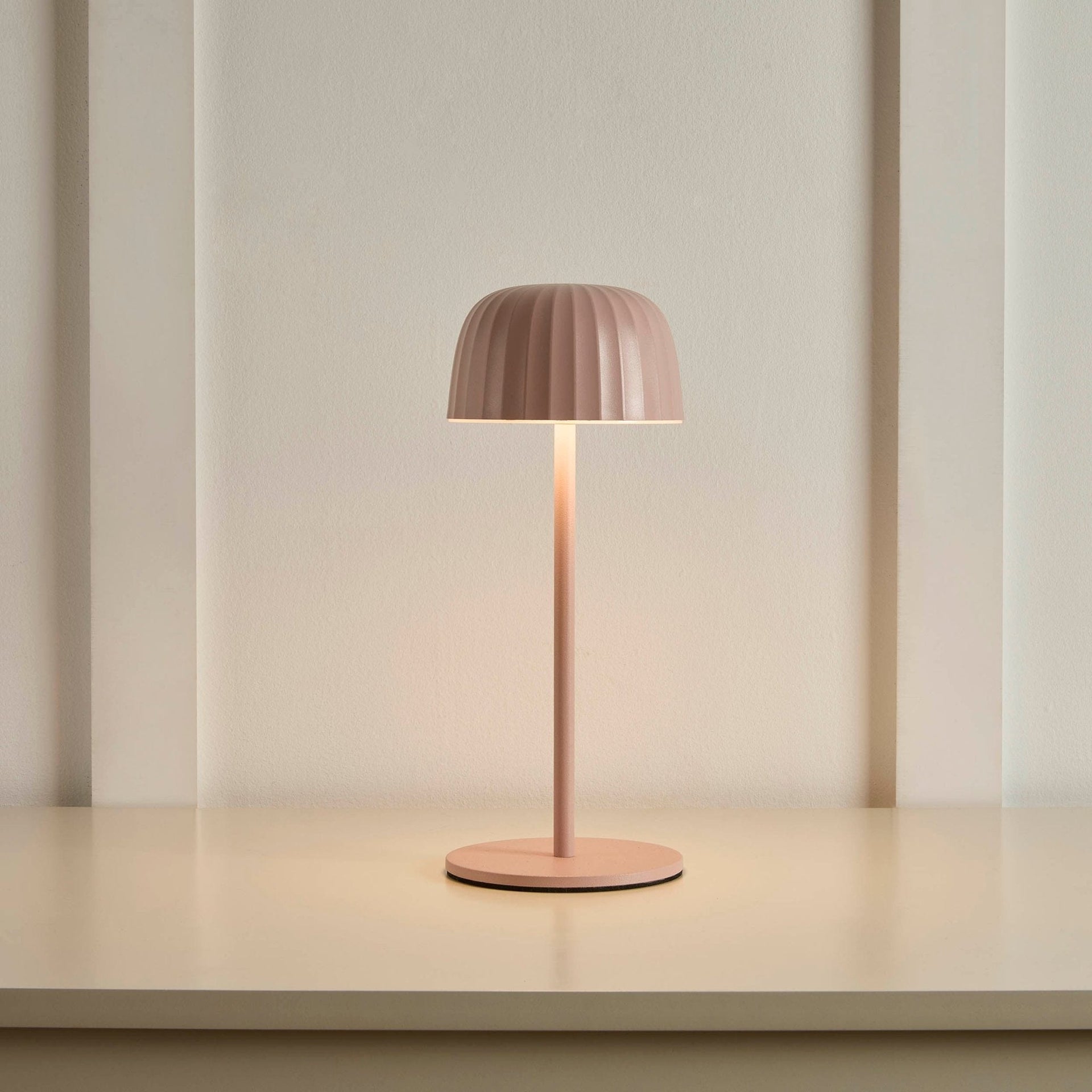Are LED lights good for bedrooms? Here’s why you might want to make the switch, according to lighting experts
From which brightness and colour is best, to the best places to place them to create a cosy and relaxing atmosphere...
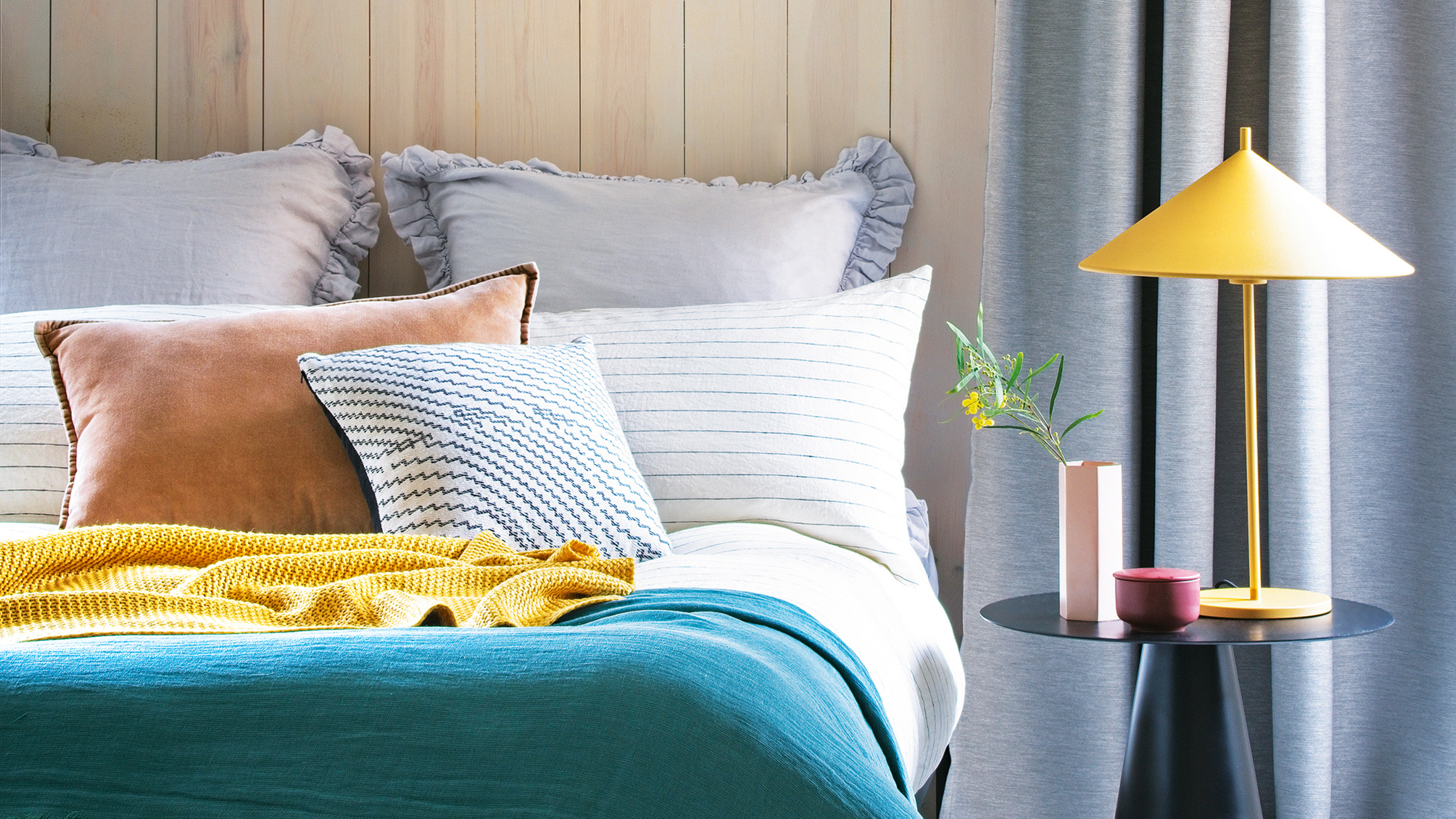

Whether you’re in the process or revamping your bedroom or have been thinking about switching up your bedroom lighting to create more of a restful retreat, you might have asked yourself ‘are LED lights good for bedrooms?’ And there are a few things you might want to consider if you plan on utilising them.
Something as simple as swapping out your existing bulbs and lights for LED ones can make a big difference to your bedroom lighting ideas, not only to the overall look of the room, but it can also provide the opportunity to add ambience, easily switch between different light temperatures and colours and most importantly, save you money and energy in the long run.
So, here’s everything you need to know about using LED lights in the bedroom and if they’re a good idea or not…
What are the advantages of using LED lights in your bedroom?
There are several reasons why you might want to switch to LED lights in your bedroom. First and foremost, LED lights consume much less energy than traditional incandescent light bulbs, which can save you money on energy bills over time.
For example, ‘switching a traditional 100w incandescent lightbulb for an LED bulb will save nearly £28 on your electricity bill; and that’s just for a single bulb. The more bulbs you have in your bedroom, the greater the savings,’ says Jane Rylands, Lighting Expert at 4lite. ‘For six bulbs, the saving jumps to £165. Even compared to halogen bulbs, six LEDs can save nearly £39 a year in electricity costs.’
As well as saving energy, LEDs last longer and are more durable, so you won’t need to replace them as often.
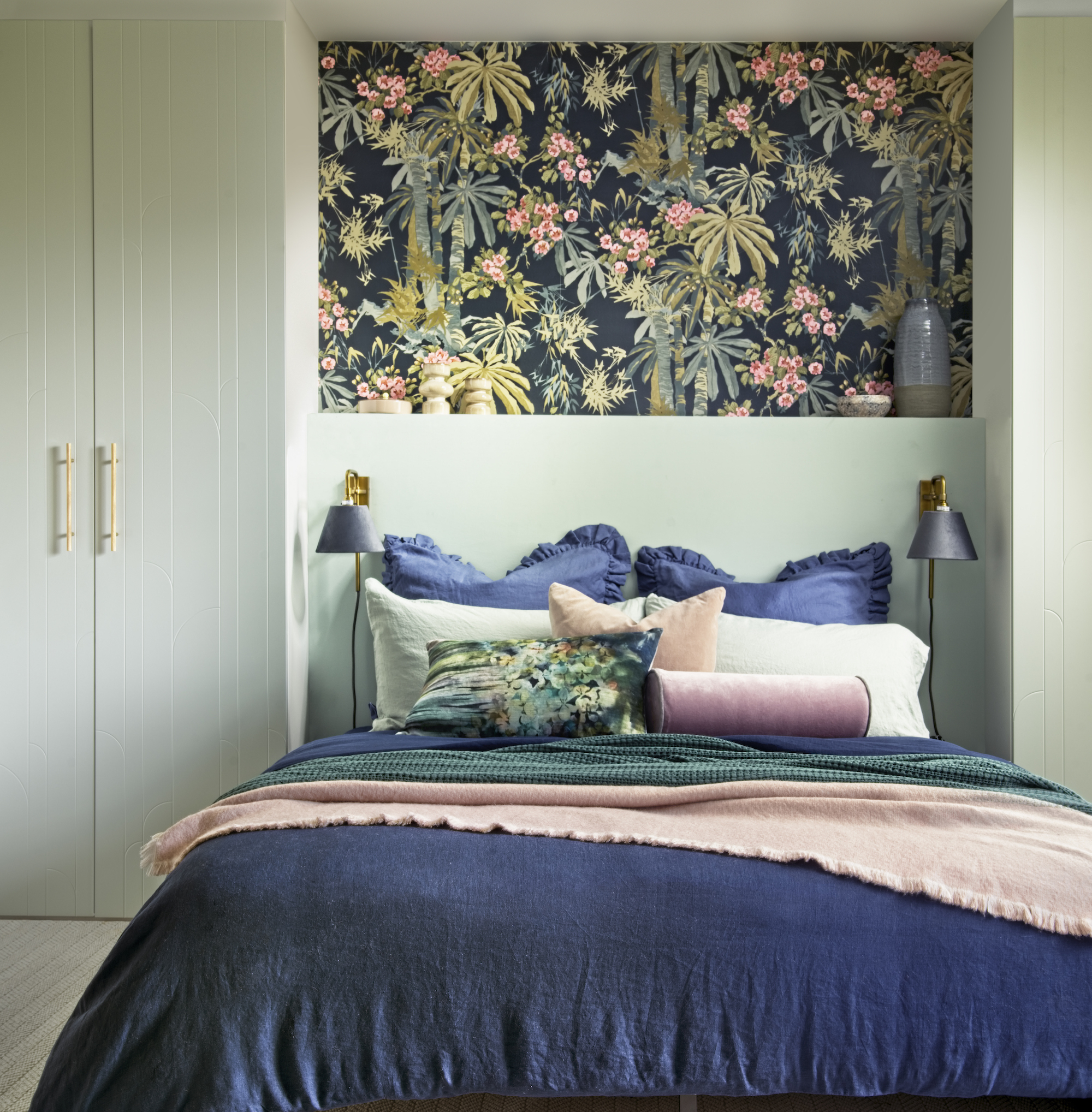
Another bonus is that LED light bulbs come in a variety of colour temperatures, this includes warm white, cool white, daylight and more. Smart LED bulbs also allow you to choose from a wide variety of colours. You can even control them by your phone or voice-activated smart device, allowing you to turn your lights on or off from the comfort of your bed, without having to get up. Trust us, that comes in handy on a particularly chilly night or when you've gotten cosy.
Get the Ideal Home Newsletter
Sign up to our newsletter for style and decor inspiration, house makeovers, project advice and more.
‘Using warm white LED lights within your bedroom has been found to help promote better sleeping habits, this is because warm white closely mimics the natural light produced when the sun is setting and this light helps your body to relax at the end of the day,’ LED & Power's Lighting Expert, Sam Garbutt, remarks. Additionally, many LED lights are also dimmable, giving you greater control over the lighting levels, allowing you to tailor them to your exact specifications and taste.
The disadvantages to using LED lights in a bedroom
Even though LED bulbs consume far less energy than traditional lights, which eventually leads to lower bills and saves you money over time, they do have a higher initial cost than traditional incandescent light bulbs and are therefore more of an investment.
But one of the biggest downsides of using LED lights in a bedroom is that ‘LED lights emit blue light, which has been found to cause eye-strains, headaches and affect sleeping,’ Sam advises.
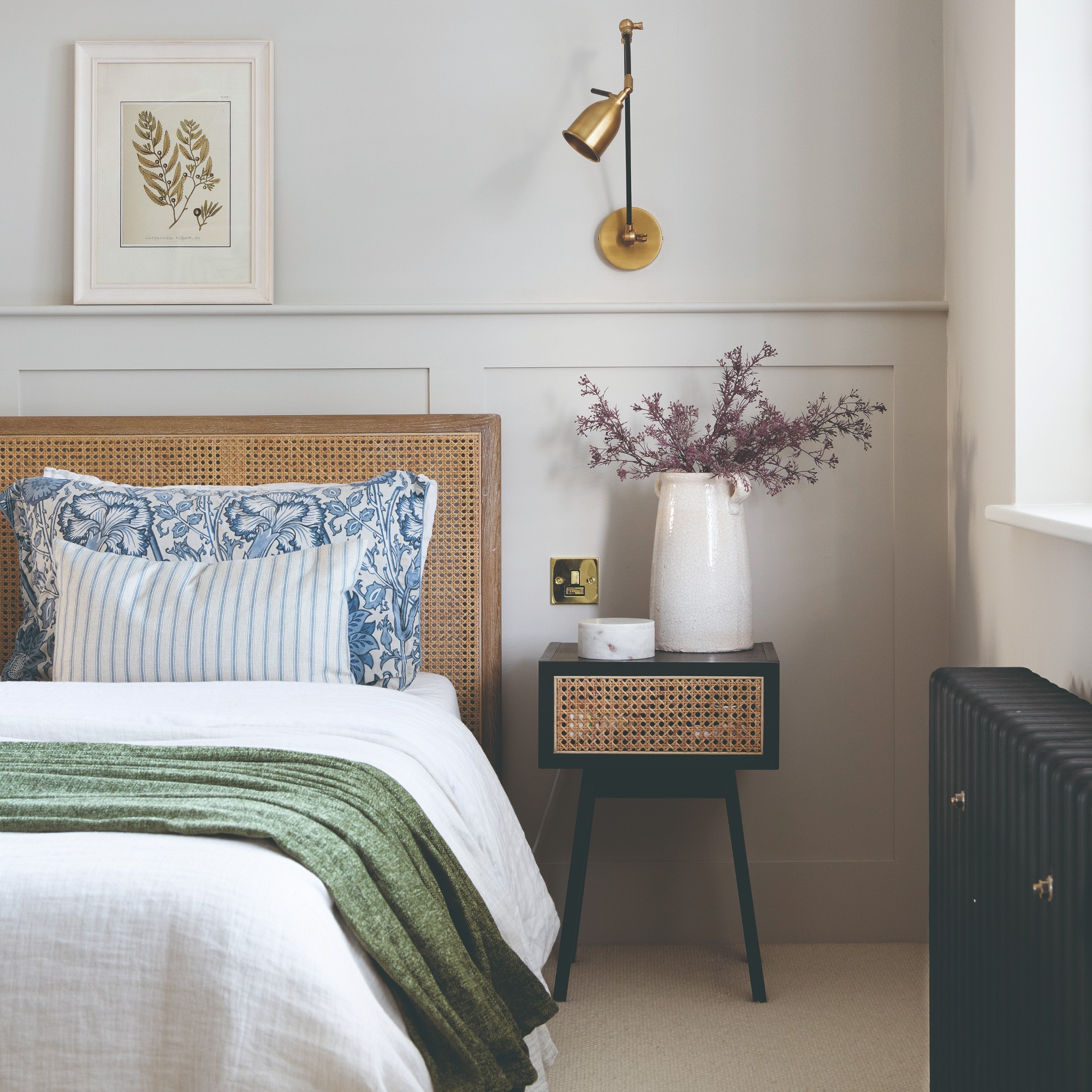
Now, you might be aware that your phone or tablet emits blue light, which is why many experts recommend avoiding any form of blue light for at least an hour before going to sleep. But lights of any kind – even low light levels – ‘can affect your body’s natural sleep-wake cycle,’ explains John Mcallister, Lighting Expert at MyJobQuote.co.uk. So, you’ll want to avoid using LED lights too close to bedtime.
Plus, some LED bulbs, especially cheaper ones, can flicker slightly. ‘This could be distracting and may potentially cause eye strain or headaches,’ John warns. Which is why it’s important to invest in good quality LED lights that will last you for many years to come.
What is the best LED brightness and colour for a bedroom?
The experts agree that you should be aiming for between 1500 and 4000 lumens, depending on the size of the room. In most cases ‘for smaller bedrooms, aim for 1500 – 2500 lumens and for larger bedrooms aim for 2500 – 4000 lumens,’ John proposes. However, you can adjust the brightness based on your own levels of comfort and whether you need task, ambient or accent lighting. You also might want to consider a dimmer switch, if you don’t already have one, so that you can dim the lights and create a more relaxing atmosphere.
And according to Marlena Kaminska, lead digital designer at ValueLights, ‘if you have colour-changing LED lights, red and amber are thought to be best for bedtime as they can stimulate melatonin production and give you a better night’s sleep.’ Essentially, you’ll want to steer clear of bright white and blue-toned LED lights in bedrooms.
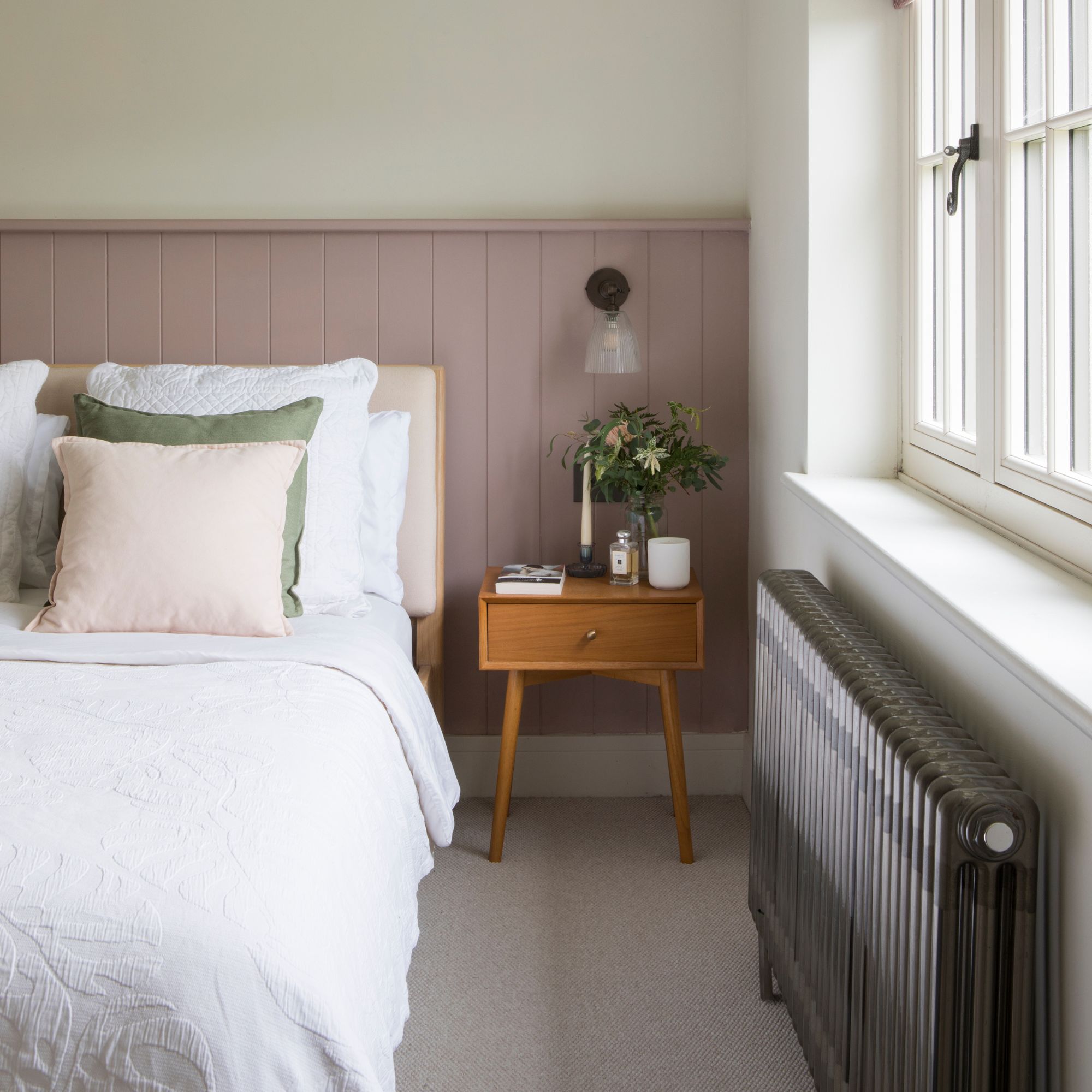
Where should I put my LED lights in my bedroom?
Depending on what you’re looking to achieve and the type of bedroom lighting that you’re looking for, there are a few different options you can consider, or a combination of a few. ‘Consider ceiling-mounted LEDs for general lighting, bedside lamps for reading, and LED strips under the bed or behind headboards for ambient lighting. Wall sconces and recessed lighting can also enhance aesthetics while saving space,’ suggests Julian Page, Head of Design at BHS.
If you’re looking to make a statement or add an interesting design feature with LED lights, Marlena recommends adding warm lighting to a bedroom with strip lights. 'You can put strip lights behind your headboard or under your bed for a warm glow that will reflect throughout the space,’
‘Adding strip lighting around the ceiling of your bedroom can create a fun ambience that transforms your room to fit the mood you’re in with the colour-changing features,’ she adds.
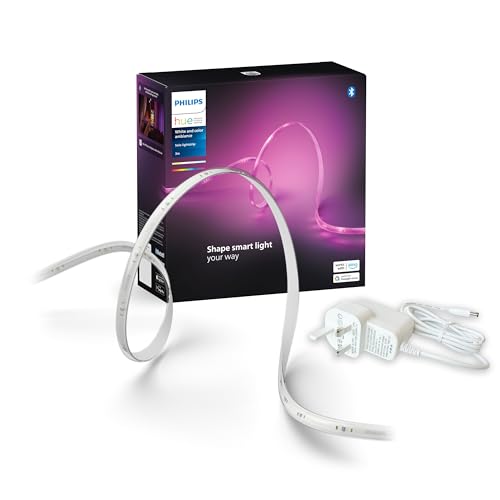
This Philips Hue LED lightstrip has thousands of five-star reviews and works with a variety of smart home kits. We love that you can change the colours in an instant.
Is it OK to sleep with LED lights on?
Sleeping with LED lights on may seem tempting, as it can create a snug and relaxing atmosphere, but the blue light that they emit can negatively affect sleep.
‘If you must sleep with a light on, choose warm LEDs,’ John says, and dim the lights as much as possible. But, ideally, it is best to sleep in a completely dark room for optimal sleep quality, the experts agree.
Are LED lights safe for a bedroom?
Unlike traditional incandescent bulbs, which can produce quite a bit of heat if left on for extended periods, LED lights and bulbs emit minimal heat, thus reducing the risk of fire hazards. Because of this, they're also safer to use around children and pets.
Just make sure to shop from reputable brands and avoid overloading electrical circuits and extension cables, to be on the safe side.

Ellis Cochrane has been a Freelance Contributor for Ideal Home since 2023. Ellis has been writing about homes, interiors and gardens for four years now, with her also contributing to House Beautiful, Country Living, Expert Reviews, Real Homes and Stylist.
You must confirm your public display name before commenting
Please logout and then login again, you will then be prompted to enter your display name.
-
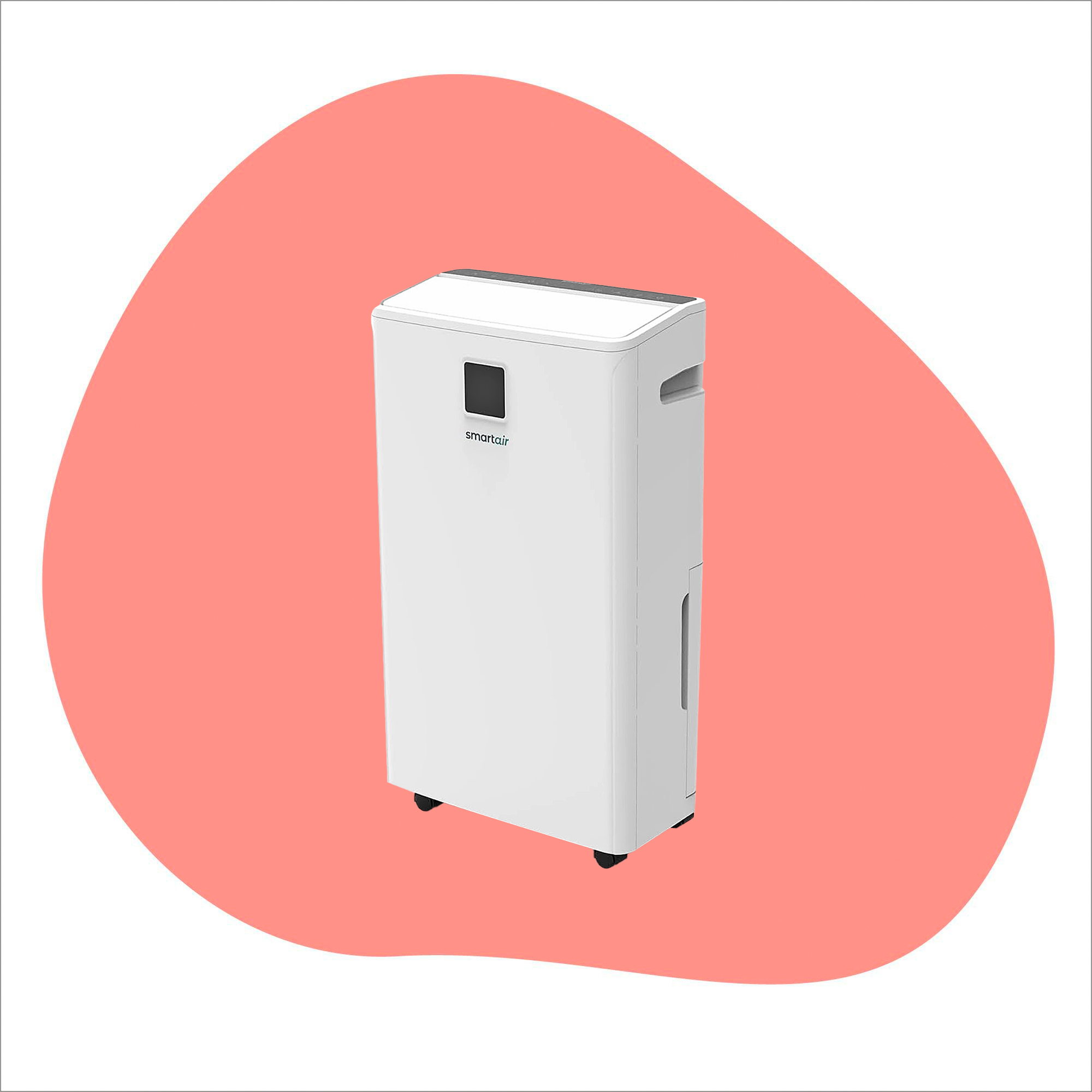 I tried out this neat little dehumidifier for a month – it dried my laundry in half the time
I tried out this neat little dehumidifier for a month – it dried my laundry in half the timeThe 20L SmartAir Dry Zone dehumidifier tackled my laundry drying woes head on
By Jenny McFarlane
-
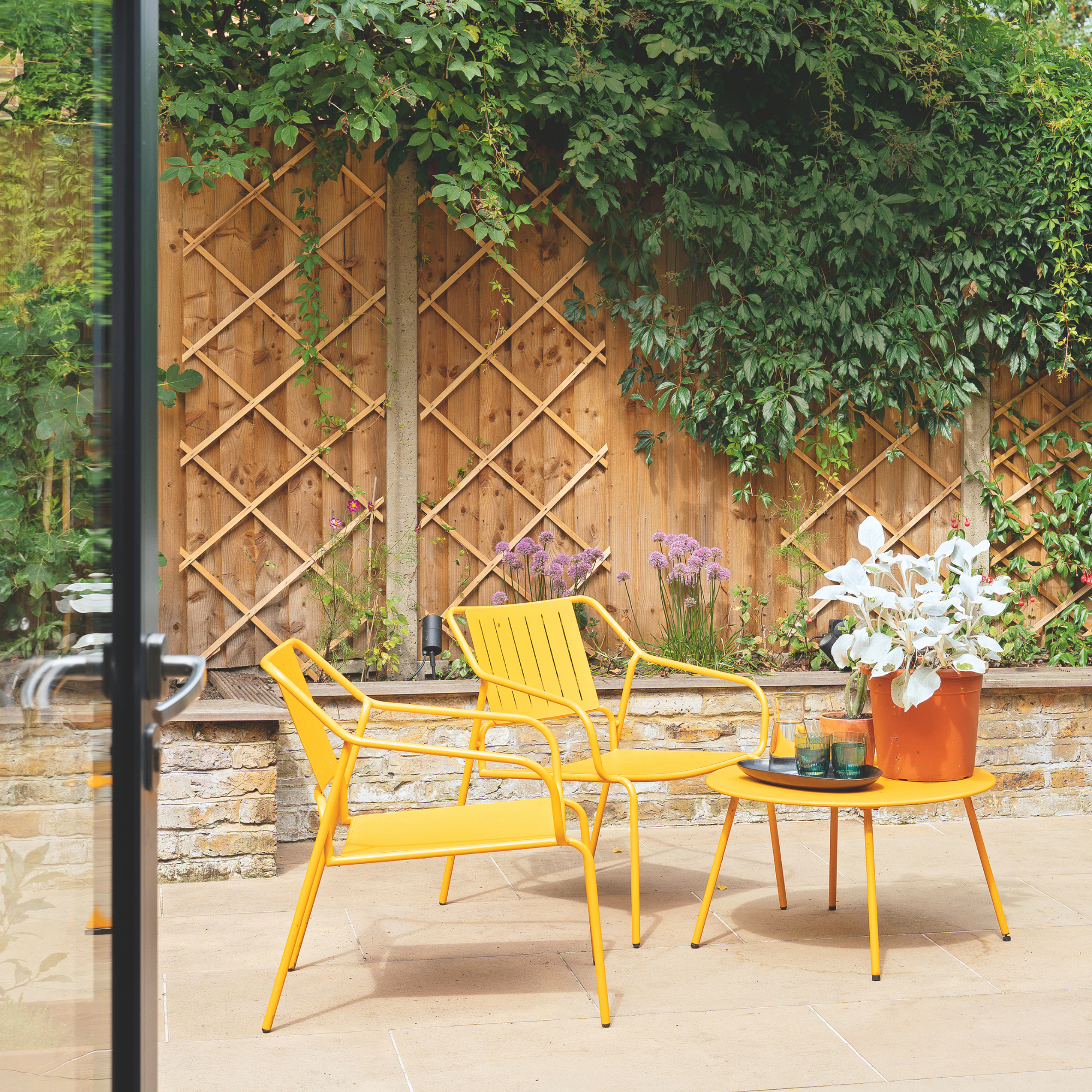 I’m seeing pastel garden furniture at all my favourite brands this spring, but QVC’s sorbet collection impressed me the most
I’m seeing pastel garden furniture at all my favourite brands this spring, but QVC’s sorbet collection impressed me the mostFresh pastel shades are a great way to liven up your outdoor space
By Kezia Reynolds
-
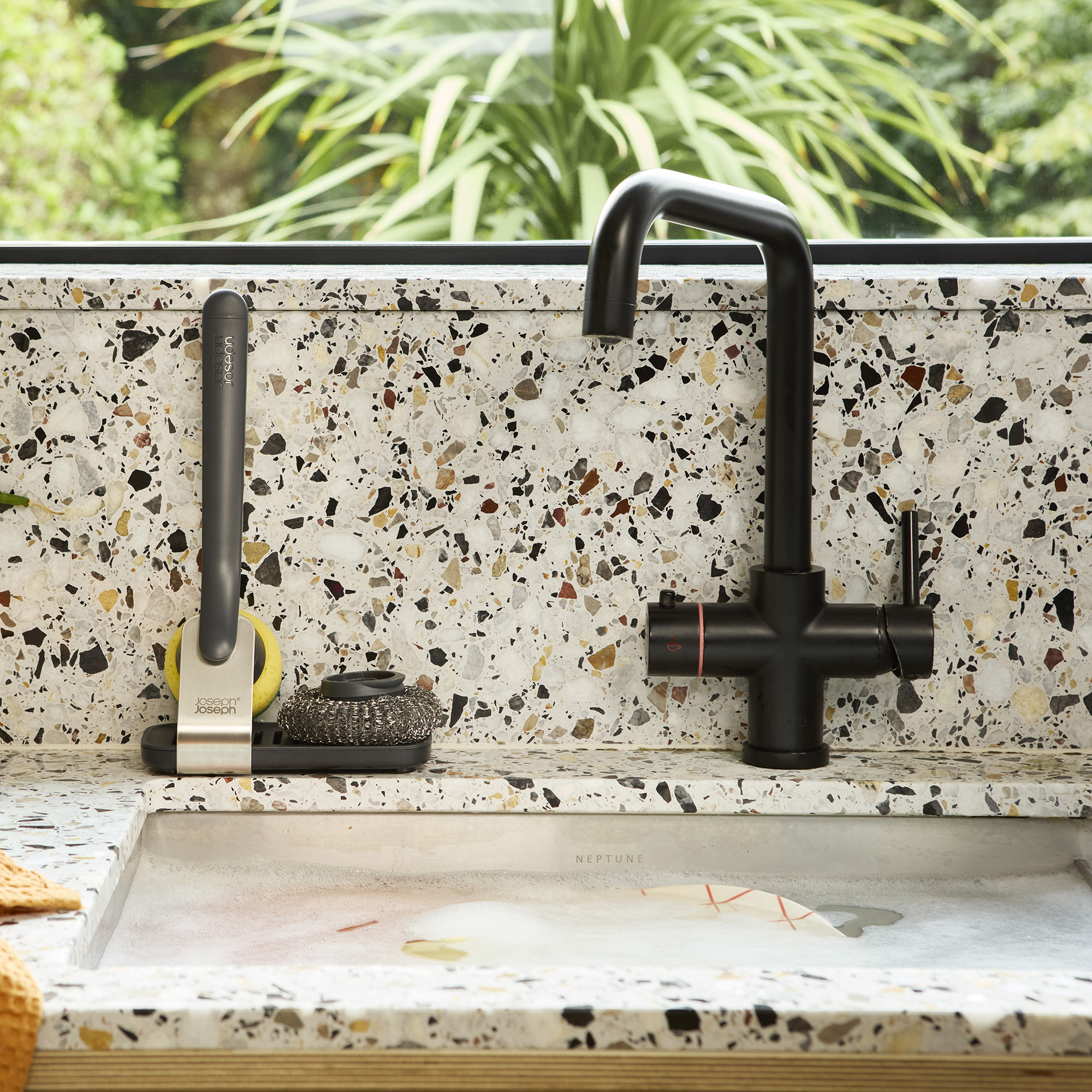 Don't tell my flatmates, but Joseph Joseph's clever new sink range finally made me enjoy washing up
Don't tell my flatmates, but Joseph Joseph's clever new sink range finally made me enjoy washing upI didn't know stylish washing up accessories existed until I saw this collection
By Holly Cockburn
